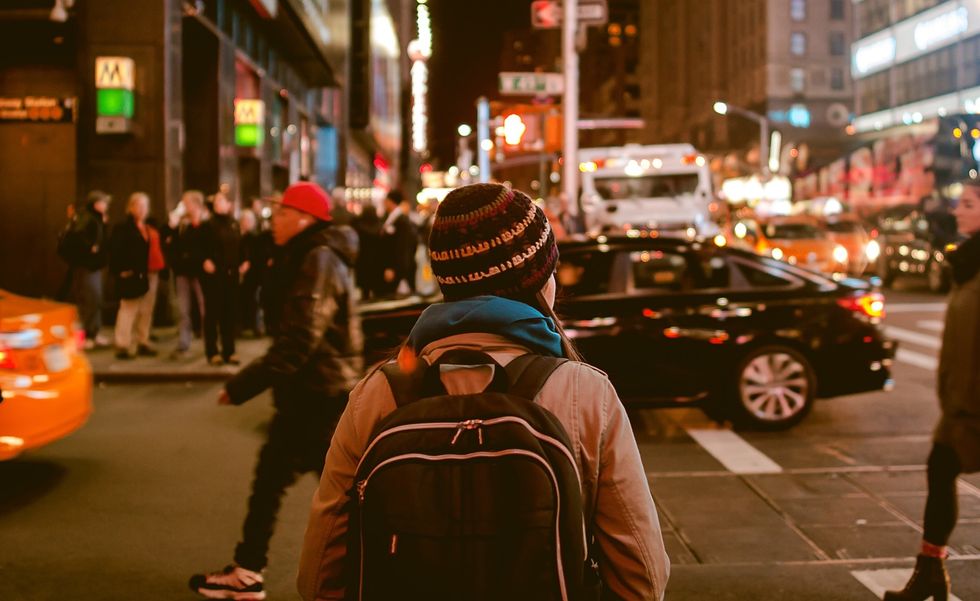If you're a college student, I'm sure walking is one of your main methods of transportation. Walking is the only way to get around on many college campuses across the United States. Whether you're walking from a dorm to the dining hall, to-and-from class, to the gym or the student center, or even to the local bars at night, students are always on the move. While walkers are always encouraged to follow the rules of the road, both pedestrians and drivers often put themselves at risk. Studies show the most dangerous spots for pedestrians tend to be metropolitan hubs near places like universities.
More than 5,300 pedestrians were killed in traffic crashes in 2015. Most of those crashes happened in urban areas at night. While the responsibility is on drivers to pay attention and give pedestrians the right of way, walkers also need to be aware of their surroundings and safety at all times. Here are some helpful tips to keep yourself safe when walking around campus:
1. Pay attention.
These days it's really easy to get caught up looking at your phone or listening to music while you walk. If you're texting and walking, not only do you run the risk of an embarrassing collision with a street light, but you could also put yourself into serious danger. While pedestrians do have right away, we often assume oncoming cars are paying attention to us. Be aware that cars may not see you, or the person behind the wheel may not be paying attention. Avoid distractions and take responsibility for your safety rather than counting on drivers to follow the rules.
2. Be visible.
Make sure you're walking in well-lit areas and that you can be easily identified by passing cars. Make eye contact with drivers whenever possible, especially when you're crossing the street. Don't cover yourself in dark clothes and hoods if you're walking around late at night. NHTSA data shows 32% of all pedestrian deaths occur between eight p.m. and midnight.
3. Don't jaywalk.
This one seems obvious, but people do it every single day. If you dart out in front of a car, you're far more likely to be involved in an accident. Keep your movement between the lines of a crosswalk, and only go when directed by the traffic lights. Being two more minutes late to class isn't going to break your semester, but a serious injury definitely will.
4. Stay on the sidewalk.
Don't walk in the shoulder of a lane if it's avoidable. You become a much easier target when you enter a car's physical space. If no sidewalk is available, walk against traffic so the oncoming cars can see your face.
5. Avoid too much alcohol.
Not only are you running the risk of getting a public intoxication ticket, but stumbling through town makes you much more likely to get hurt in an accident. Almost half of crashes with pedestrians involve alcohol. More surprising, 34% of that total was caused by intoxicated pedestrians. If you wander into the street and a driver doesn't react quickly enough, that could mean serious danger for both of you. If you're having trouble walking, call an Uber of Lyft home instead.
6. Always look both ways.
Remember what you learned as a little kid — look both ways before crossing the street. It may be cliché, but you never know who could be coming up on the other side.
Remember, it's your responsibility to stay safe walking around. Drivers won't always cater to walkers as they should. Stay smart, obey traffic signals and signs, and stay on the lookout for yourself and your friends.






 The minimum wage is not a living wage.
StableDiffusion
The minimum wage is not a living wage.
StableDiffusion
 influential nations
StableDiffusion
influential nations
StableDiffusion












